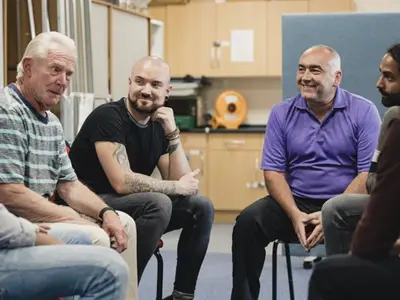Developing and translating knowledge about effective responses to delinquency and the impact of corrections systems on families of system-involved individuals through the design and execution of practice-relevant research studies.
While cases of delinquency and status offending have been on the decline since their peak in 1997, court systems around the country still disposed a large number of cases in 2018—about 744,500 delinquency and 101,400 status offense cases. The reduction in cases is the result of over two decades of reform, coupled with research on adolescent development that promotes appropriate responses to address problem behavior among youth and reduce their chances for continued justice system involvement. Research has helped develop a greater understanding of the constellation of complex individual, family, peer, school, and community-related needs of system-involved youth. The development of structured decision-making tools such as risk and needs assessments, as well as the implementation of developmentally appropriate programs, have resulted in better outcomes for youth. Despite these and other advances, juvenile justice practitioners face challenges, such as implementing evidence-based programs with fidelity, matching youth to the services they need to prevent further delinquency or adult criminal justice system involvement, partnering with school administrators to ensure that justice-involved youth are enrolled in supportive school settings, and engaging with workforce development programs to prepare justice-involved emerging young adults for work.
Incarceration also affects the partners and children of those in jails and prisons. Over half of prison and jail inmates are parents, and nearly 7.5 million children in 2006 had at least one parent who was incarcerated or under correctional supervision. Many incarcerated and reentering adults are in committed intimate relationships, often involving cohabitation and/or marriage prior to incarceration. Given the disproportionate effects of incarceration on communities of color, understanding family and social ties in the context of incarceration is integral to understanding the experiences of many of society’s most vulnerable adults and children. Further, the important role of the family in supporting a reentering individual’s reintegration and promoting desistance from criminal activity suggests the need for empirically based solutions to promote family contact and strengthen family relationships during incarceration and after release.
The RTI Center for Courts and Corrections Research has a history of working at the state level to improve system responses to delinquency to curtail further involvement of youth in the justice system. From administration of statewide surveys and focus groups with practitioners and system stakeholders to linkage, preparation, and analysis of complex, multisystem administrative data, our research efforts are particularly focused on informing policy and practice to reduce recidivism among youth involved at the “deep end” of the juvenile justice system and youth reentering their communities after confinement. Through translation of research, we have assisted juvenile justice policymaking in the areas of needs-to-service matching, education and workforce development, the needs of LGBTQ+ youth, and family engagement.

The Multi-Site Family Study of Incarceration, Parenting, and Partnering
This groundbreaking 10-year mixed-methods study of incarcerated fathers and their families culminated in the publication of Holding On: Fatherhood and Family during Incarceration and Reentry by the University of California Press. This study, which was conducted in collaboration with RTI’s Center for Community Safety and Crime Prevention, followed nearly 2,000 incarcerated men and their intimate or coparenting partners in five states for 36 months, producing one of the richest datasets and collections of journal articles, book chapters, policy briefs, and practitioner guidelines for implementing family strengthening programs in correctional settings.

North Carolina Comprehensive Statewide Juvenile Reentry Systems Reform Implementation
As the evaluation partner on this deep-dive juvenile reentry system reform effort, RTI developed a detailed profile of the current reentry landscape and documented the development and implementation of planned reforms. The study team designed and administered a statewide survey of juvenile court counselors, conducted interviews and focus groups with facility staff, and reviewed reentry policies. The study team also leveraged North Carolina’s extensive administrative data to assess recidivism outcomes of reentry youth who experienced the pre-reform reentry system and developed a comprehensive portrait of recidivism from measures drawn from data across the juvenile justice, criminal justice, and corrections systems. RTI’s study informed reforms needed to improve outcomes among reentry youth, including the development of a pilot program to provide intensive, wraparound support to youth returning to their communities after confinement.






